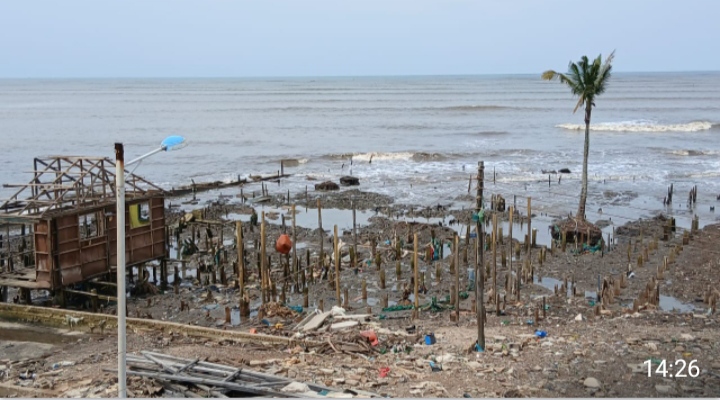Fostering Equity in Renewable Energy: Multi-Stakeholder Dialogue on Just Wind and Community Inclusion

By our reporter
In multi-stakeholder dialogues organised by the Health of Mother Earth Foundation (HOMEF), diverse stakeholders examined emerging environmental and climate issues, highlighting red flags, pitfalls, challenges, and opportunities. These discussions provided ecologically sound recommendations grounded in equity, accountability, and justice principles.
Participants included coastal and non-coastal communities, academics, government regulatory agencies, policymakers, civil society organisations (CSOs), and industry representatives. The dialogues aimed to foster understanding, collaboration, and mainstreaming community concerns, ensuring that gaps between policy and practice are bridged through sustained advocacy.
The meeting critically assessed stakeholders’ perceptions of renewable energy, emphasising the central role of communities in renewable energy initiatives. Key discussion points included defining what renewable energy is and is not, identifying the types that best serve community needs, and amplifying community voices in energy transition debates.
Stephen Oduware, HOMEF’s Fossil Fuel Project Manager, explained that the meeting sought to clarify the communities’ role in renewable energy initiatives and establish a framework for developing indicators of meaningful community participation.
“While the exploration and exploitation of critical minerals for the energy transition continue, communities bear the brunt of the impacts. The environmental and social consequences often mirror those of oil and gas extraction. In the coming years, Nigeria’s renewable energy potential will likely see intensified development—assuming progress aligns with expectations,” Oduware noted.
He added, “We are here to build consensus against corporate impunity, ensure knowledge-sharing among community members, and develop a policy brief on ‘Renewable Energy and Community Consensus’ for advocacy.”
Oduware also highlighted HOMEF’s longstanding efforts: “Over the years, HOMEF has engaged coastal and non-coastal communities in the Niger Delta and across Nigeria, strengthening their capacity to identify environmental, socioeconomic, and well-being challenges. We support communities in mobilizing action to protect their environment and defend their rights.”
Oba Oluwanbe Ojagbownmi JP, the Ogeloyinbo of Ayetoro community, appealed to governments at all levels to address worsening sea incursions and improve electricity access.
“We have long awaited an opportunity to expand our understanding of renewable energy. As a community, we will engage the government and companies to incorporate renewable energy into their corporate social responsibility initiatives. This meeting has deepened our knowledge, and we will leverage these insights in future engagements,” he said.
Hon. Emmanuel Ojegbaletimoye, Ward 2 Councilor in Ilaje LGA, Ondo State, commended the organizers for an enlightening session.
“This program has bridged the gap between the government and the people. The discussions here will be relayed to the local chairman and onward to the governor. We commit to implementing the outcomes and advocating for the people of Ayetoro, Awoye, and neighboring communities,” he affirmed.
Reported impacts on communities include environmental pollution, ecosystem degradation, socioeconomic dislocation, livelihood losses, waste accumulation, human rights violations, lack of consultation, and land/water grabs, among other direct and indirect effects.
The meeting brought together 30 participants, including representatives from Ayetoro community, CSOs working on renewables and gender issues, the Ondo State Ministries of Environment and Agriculture (Fisheries Department), prospective Eco-Defenders, and academics from Ondo State institutions.
Understanding communities’ renewable energy needs, mapping wind and solar energy potentials in coastal areas, and advocating for decentralized renewable energy initiatives in the Niger Delta.
Intentional, consistent, and inclusive engagement with stakeholders—communities, governments, and industry players—is essential to evaluate proposed renewable energy models. Critical questions— “For whom? By whom? And for what?”—must guide these efforts to ensure a just and equitable energy transition.
